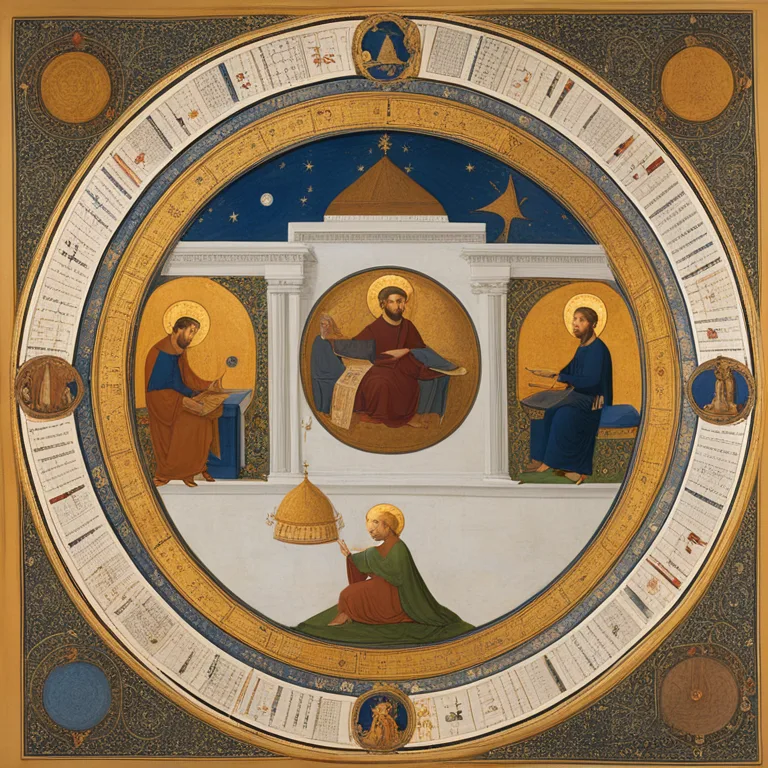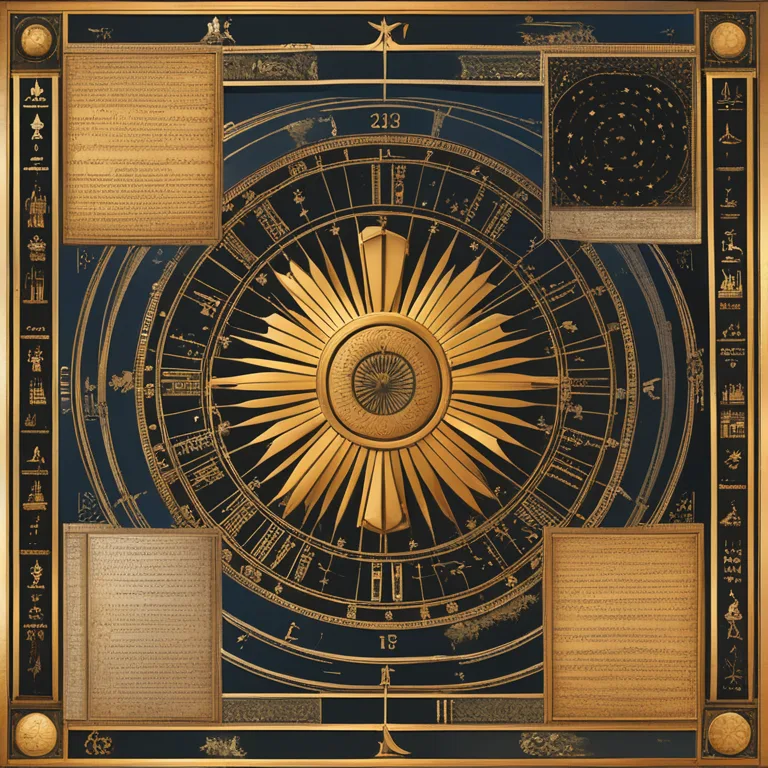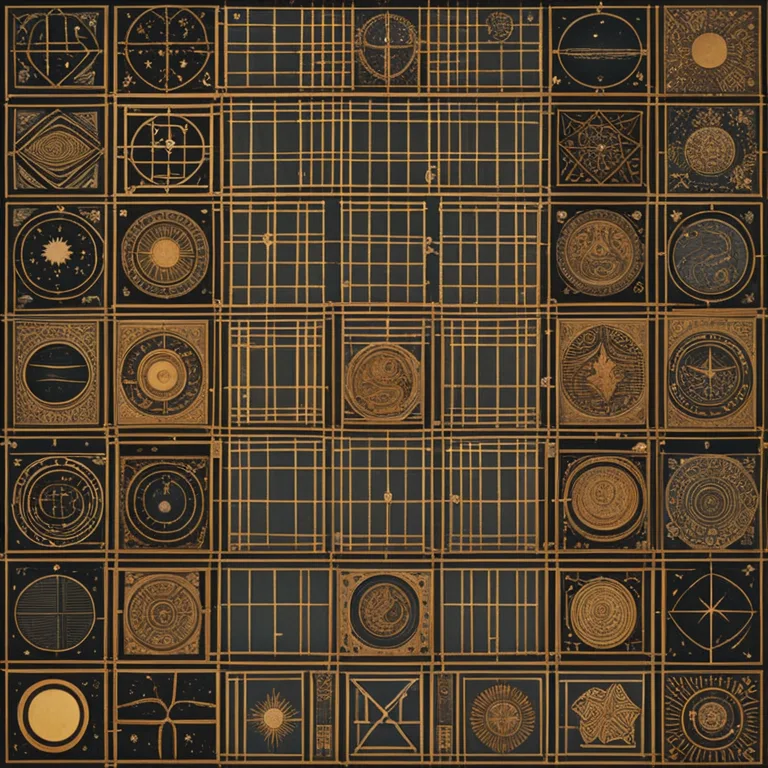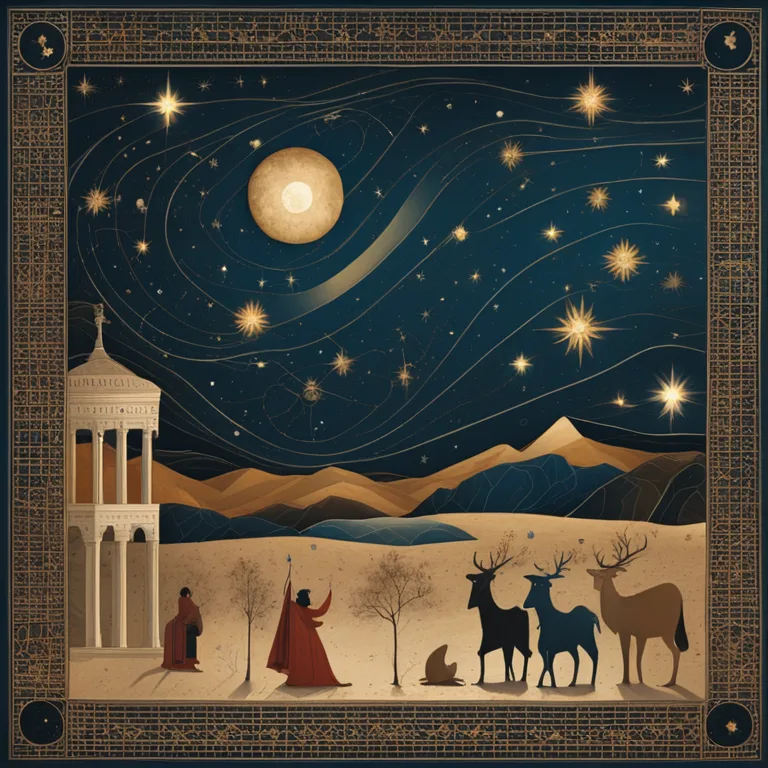
The Genesis of Astrology Explained
The origins of astrology trace back to ancient civilizations. Discover how this mystical practice began and its evolution over the millennia.
article by Priya Deshmukh
Stargazing Beginnings
Since time immemorial, the celestial dance of stars and planets has enchanted humanity. The birth of astrology is entwined with our ancestors’ quest to understand the patterns of the skies. These early stargazers observed celestial cycles and noted their correlations with seasons, which were vital for agriculture. In doing so, they laid the groundwork for what would become a complex art and science. Their initial curiosity evolved into a belief that the heavens influenced earthly events, a concept that would mature into the astrology we recognize today.

Ancient Astrological Practices
Astrology's formal genesis can be pinpointed to the ancient civilizations of Mesopotamia, over 4,000 years ago. The Babylonians were particularly instrumental in developing astrology. They created the zodiac, an imaginary belt in the sky divided into twelve sections, which later civilizations—such as the Greeks, Romans, and Egyptians—would adopt and adapt. They meticulously charted the planets and stars, ascribing gods and omens to them, which priests would interpret. Astrology thus served as a divine language, offering insights into the gods' wills.

Hellenistic Astrology and Horoscopes
Astrology underwent significant evolution in Hellenistic Egypt after the conquests of Alexander the Great. This cultural melting pot synthesized Babylonian and Egyptian traditions, giving rise to the horoscopic astrology which forms the basis of modern Western astrology. Horoscopic astrology uses a map of the sky at one's birth, or horoscope, to predict personalities and life paths. By the 1st century BCE, this horoscopic practice was commonplace, and personal astrology readings began to spread. Astronomical knowledge became more precise, which in turn refined astrological predictions.

Medieval Astrology's Peaks and Troughs
During the Middle Ages, astrology experienced highs and lows. In Islamic cultures, it flourished, with scholars translating and expanding upon Greek texts, eventually reintroducing this knowledge to medieval Europe. By the Renaissance, astrology was highly regarded in academic circles. However, the Scientific Revolution and the rise of empirical thought began to overshadow astrology, relegating it to the fringes of science. Despite skepticism from scientific communities, astrology has persevered and continued to be a tool for self-reflection and forecasting.

Astrology in the Modern Era
Astrology saw resurgence in the 20th century, blending psychological insights with traditional techniques. It adapted to contemporary society, with horoscopes becoming a popular feature in daily newspapers and magazines. Personalized astrological readings have also soared in the digital age, with access to tools and information becoming more widespread than ever before. Heading into 2024, astrology remains a source of comfort and introspection for many, spurring a renewed interest in celestial events and their significance in our personal and collective lives.
Astrology Looking Forward
As society progresses into 2024 and beyond, astrology's adaptability ensures its endurance. It now forms part of the broader New Age movement, offering a spiritual counterpoint to a high-tech world. Astrologers today combine ancient knowledge with modern techniques to provide personalised forecasts and insights. Ongoing celestial phenomena, such as the Great Conjunctions or the movement of the North Node into Aries in 2026, continue to offer rich material for astrological interpretation and guidance, connecting us with the timeless human tradition of seeking wisdom in the stars.
Published: 12/29/2023
Modified: 1/3/2024
More predictions
Come back here soon to learn more about yourself and your future


Astrology: The Influence of Your Moon Sign
Discover the profound impact of your Moon sign on emotional responses and inner life in the astrological landscape.


Astrological Sign Compatibility: Love among the Stars
Discover the dynamics of love and friendship through the lens of astrological sign compatibility. Find out which zodiac pairs harmonize and those that challenge one another.


Astrology Love Match: Star Sign Compatibility
Discover the dynamics of love and relationships through astrology love matches. Learn how your star sign influences compatibility with potential life partners.